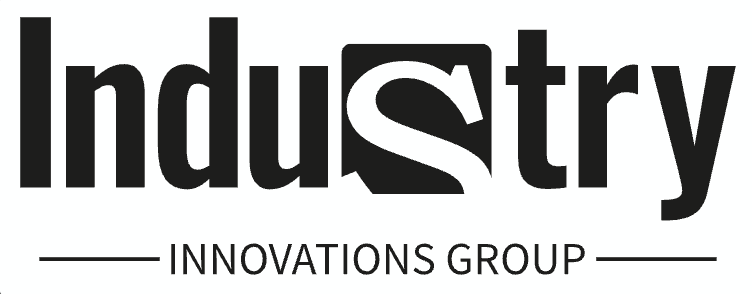Artificial intelligence (AI) is revolutionizing numerous industries, and the beverage sector is no exception. The use of AI in beverage quality control is transforming how companies ensure their products meet stringent quality standards. By incorporating advanced technologies, businesses can optimize their processes, reduce waste, and deliver consistently high-quality beverages to consumers. This article delves into how AI applications are enhancing beverage quality control, the benefits of these technologies, and their future potential.
Table of Contents
The Role of AI in Beverage Quality Control
AI is instrumental in elevating beverage quality control standards. Through machine learning algorithms and data analytics, AI systems can detect inconsistencies in production processes, identify potential contaminants, and ensure that each batch of beverage meets the desired specifications. These systems are designed to learn from data, improving their accuracy and efficiency over time.
Machine Learning Algorithms
Machine learning algorithms analyze vast amounts of data from the production line to identify patterns and anomalies. This helps in detecting defects early in the production process, reducing waste and ensuring quality. For instance, machine learning can predict the likelihood of spoilage based on historical data, allowing manufacturers to take preventive measures.
Data Analytics
Data analytics in AI systems provides real-time insights into the production process. By continuously monitoring parameters such as temperature, pH levels, and ingredient ratios, AI can alert operators to any deviations from the norm. This ensures that corrective actions are taken promptly, maintaining product quality.
Predictive Maintenance
AI-driven predictive maintenance minimizes downtime by predicting equipment failures before they occur. By analyzing data from sensors and machinery, AI can forecast when a piece of equipment is likely to fail and schedule maintenance accordingly. This not only prevents unexpected breakdowns but also extends the lifespan of machinery.
Benefits of AI in Beverage Quality Control
Implementing AI in beverage quality control offers several advantages:
- Enhanced Accuracy: AI systems provide precise control over production variables, ensuring consistent quality.
- Reduced Waste: Early detection of defects and predictive maintenance reduce waste, saving costs.
- Improved Efficiency: AI streamlines the quality control process, making it faster and more efficient.
- Better Compliance: AI ensures compliance with regulatory standards by maintaining detailed records and providing traceability.
Key AI Technologies in Beverage Quality Control
Several AI technologies are pivotal in revolutionizing beverage quality control:
Computer Vision
Computer vision technology enables AI systems to inspect beverages visually. By analyzing images of the product, AI can detect defects such as foreign particles, color inconsistencies, or packaging issues. This technology is particularly useful in high-speed production lines where manual inspection is impractical.
Natural Language Processing (NLP)
NLP allows AI systems to understand and process textual data from various sources, such as quality reports, customer feedback, and regulatory guidelines. By extracting relevant information, AI can identify trends and issues that need to be addressed, enhancing overall quality management.
IoT Integration
The Internet of Things (IoT) integration with AI enables real-time monitoring and control of the production environment. Sensors placed throughout the production line collect data on various parameters, which AI systems analyze to ensure optimal conditions are maintained.
Case Studies of AI in Beverage Quality Control
Several leading beverage companies have successfully integrated AI into their quality control processes. For example:
- Company A: Utilized AI-driven machine learning to reduce spoilage rates by 20%, resulting in significant cost savings.
- Company B: Implemented computer vision technology to detect packaging defects, improving product appearance and customer satisfaction.
- Company C: Integrated IoT sensors with AI analytics to monitor and optimize production conditions, leading to a 15% increase in efficiency.
These case studies highlight the tangible benefits of adopting AI technologies in the beverage industry.
Future Trends in AI for Beverage Quality Control
The future of AI in beverage quality control looks promising, with several emerging trends set to further enhance its impact:
- Advanced Robotics: The integration of AI with robotics will enable more precise and flexible automation in production lines.
- Blockchain for Traceability: Combining AI with blockchain technology will enhance traceability and transparency in the supply chain, ensuring better compliance and quality control.
- AI-Driven R&D: AI will play a crucial role in research and development, helping companies create new beverage formulations and improve existing ones through data-driven insights.
Conclusion
AI applications are revolutionizing beverage quality control by providing enhanced accuracy, efficiency, and compliance. By leveraging advanced technologies such as machine learning, data analytics, and computer vision, beverage companies can ensure their products meet the highest quality standards. As AI continues to evolve, its role in the beverage industry will only become more significant, driving innovation and improving consumer satisfaction.
For more detailed insights into AI applications in beverage quality control, visit this page.
FAQ
1. What is the role of AI in beverage quality control? AI helps detect inconsistencies, identify contaminants, and ensure consistent quality in beverage production through machine learning algorithms and data analytics.
2. How does computer vision contribute to beverage quality control? Computer vision technology allows AI systems to visually inspect beverages for defects, enhancing the efficiency and accuracy of quality control.
3. What are the benefits of using AI in beverage quality control? AI provides enhanced accuracy, reduces waste, improves efficiency, and ensures compliance with regulatory standards.
4. What future trends can we expect in AI for beverage quality control? Future trends include the integration of advanced robotics, blockchain for traceability, and AI-driven research and development.
5. How does predictive maintenance work in beverage production? Predictive maintenance uses AI to analyze sensor data from machinery, forecasting potential failures and scheduling maintenance to prevent unexpected breakdowns.

